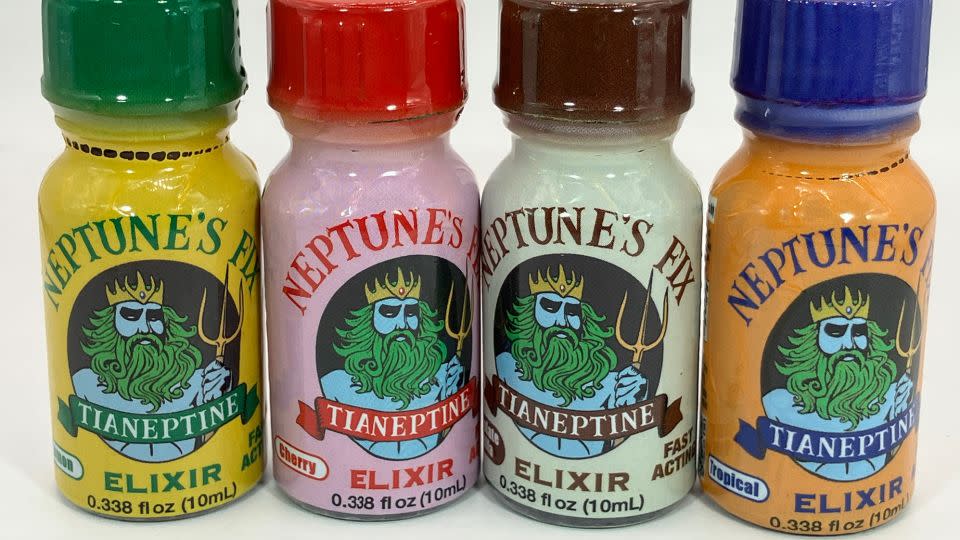Some tianeptine products recalled as CDC links drug to ‘cluster of severe illness’

The US Centers for Disease Control and Prevention is linking a “cluster of severe illness” to products with the unapproved drug tianeptine, also known as “gas station heroin,” that could also contain synthetic cannabis.
Neptune Resources, which makes some tianeptine products, has issued a nationwide recall, according to an announcement posted this week.
The company, which says its products have not been linked to any reports of adverse events, is sending letters to all distributors and customers and is arranging for the return of recalled products, including all lots of Neptune’s Fix Elixir, Neptune’s Fix Extra Strength Elixir and Neptune’s Fix Tablets.
“The products are being recalled because they contain tianeptine, an ingredient that is not FDA-approved for any medical use,” Neptune Resources said in the statement. “The presence of tianeptine renders the products unapproved drugs for which safety and efficacy have not been established and, therefore, are subject to recall.”
Tianeptine is an antidepressant prescribed in Europe, Asia and Latin America to treat major depressive disorder, according to the US Food and Drug Administration.
In the United States, tianeptine products are often sold illegally online and at gas stations as dietary supplements purported to improve brain function and treat conditions including anxiety, depression, pain and opioid use disorder, the FDA says.
Products that contain tianeptine are sold under several brand names, including Pegasus and Zaza, the CDC says.
The FDA has issued a warning urging consumers not to purchase or use tianeptine products due to serious risks including seizures, loss of consciousness and death.
In recent years, at least two deaths related to tianeptine products marketed as dietary supplements have been reported to the FDA, data shows.
“Neptune Resources LLC’s distribution channels have not reported any adverse events from the use of its products,” the company says.
According to a report published Thursday by the CDC, Neptune’s Fix was the most commonly used product among tianeptine exposures reported to the New Jersey Poison Control Center during the second half of 2023.
Between June and November, the center received 20 exposure calls from health care facilities regarding tianeptine use in 17 people, an “uncharacteristic spike” from the center’s average of two or fewer cases per year.
Of the 17 cases, 13 were admitted to intensive care units, and seven required intubation, the report says. No deaths were reported.
“All patients were described as having altered mental status upon evaluation,” the report says.
Other reported complications related to unregulated tianeptine products included low blood pressure, seizure and heart rhythm irregularities such as tachycardia, according to the report. At least one person went into cardiac arrest.
Nine people said they had used tianeptine previously; six ingested tianeptine along with other substances, including alprazolam, kratom, tramadol, trazodone and gabapentin.
Fourteen patients reported ingesting Neptune’s Fix, which contains tianeptine and kavain, a chemical compound in the kava plant used to promote relaxation.
Additionally, the researchers say that an analysis of at least two of the bottles of Neptune’s Fix found that they contained synthetic cannabinoid receptor agonists – synthetic weed – which wasn’t listed on the labels.
Synthetic cannabinoids are human-made mind-altering chemicals that are similar to the chemicals found in marijuana, but they can cause serious side effects that are different from those of marijuana.
Health care providers and consumers are urged to report adverse events or side effects related to tianeptine to the FDA’s MedWatch Safety Information and Adverse Event Reporting Program.
Anyone who has questions about tianeptine or needs emergency assistance can contact Poison Help at 1-800-222-1222 or PoisonHelp.org.
For more CNN news and newsletters create an account at CNN.com


